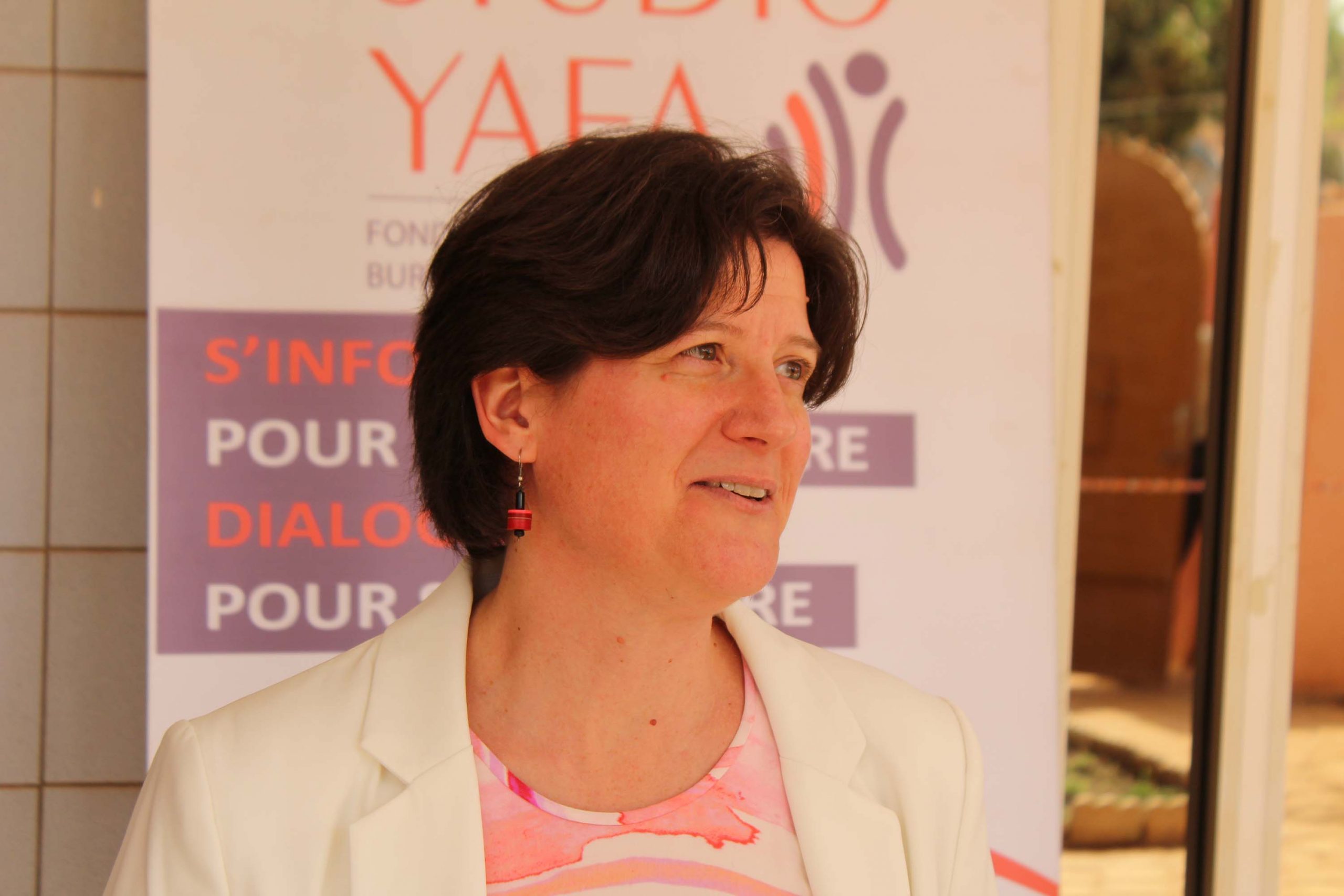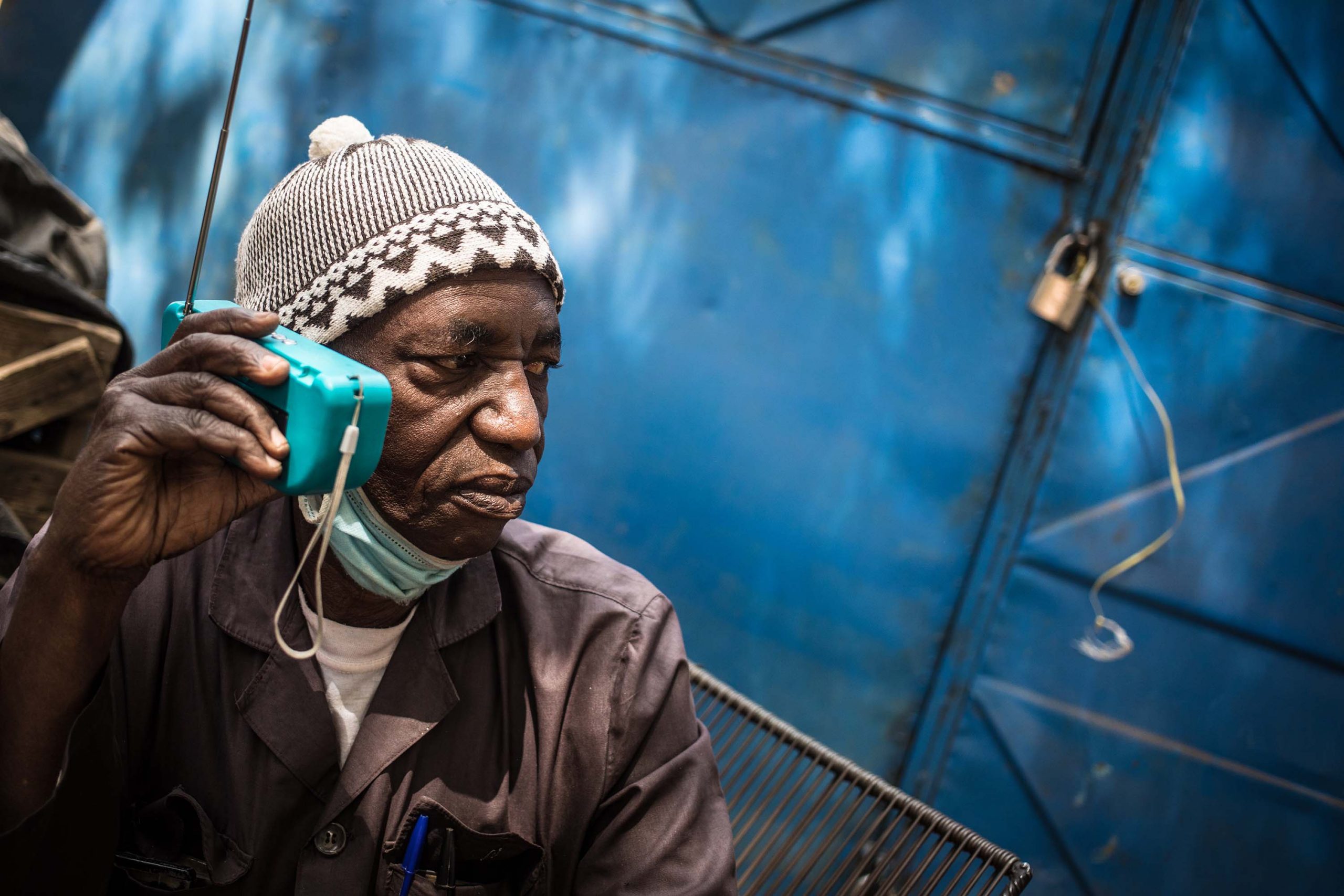Caroline Vuillemin, General Director of Fondation Hirondelle, explains the importance of supporting local media in fragile contexts, and the various aspects of Fondation Hirondelle’s approach.

What are the current issues and challenges of supporting the media, particularly in fragile contexts?
Caroline Vuillemin: The media landscape has changed a lot in the last 20 years. Media have diversified, the actors have multiplied. At the same time, the desire in international aid in recent years is to work more directly through local actors. This is what we call the localization of aid. These two trends are now coming together to push international media aid actors to work more at the local level, with more partners on the ground. As for the needs of these local media, at Fondation Hirondelle we focus on the production and broadcast of information. Being able to produce and broadcast factual, non-partisan, independent, reliable information remains a daily challenge for many media in many countries, especially in the most fragile regions facing multiple crises, conflicts and coups d’état.
There are obviously other needs inherent to the media sector today, such as digitalization, the development of new multi-channel formats, and the creation of podcasts. There is also the major challenge of media governance: how to protect the independence of editorial offices from media owners. We also have to consider the needs in terms of security. We work in fragile contexts where the security of people, goods and sources is a big concern.
Finally, we shouldn’t forget the challenge of financing. The economic model of the media is in crisis. How can media that used to work through subscription and advertising open up to a hybrid model of support, of subsidy? The reverse is also interesting: how can media that used to work exclusively through subsidies open up to revenue generation and certain economic partners?
In the crisis contexts where Fondation Hirondelle works, what were the main media issues in 2021-2022?
Starting in 2020, the pandemic brought to the forefront problems that were already present in the media. Advertisers, as well as the entire economy, were at half-mast, and this led to difficulties in operating. In some contexts, there was also a tightening of the public space, with an impact on the freedom to inform, but also on the freedom of access to information, with ministries and authorities refusing journalists access to figures on the number of infected, the number of deaths or the health measures. Some journalists took great risks to investigate major corruption in the Covid funds. Unfortunately, we are not out of this situation. It may be difficult for the media to recover lost ground, especially in terms of access to public information and freedom of information.
Another element is that distrust of the media has been exacerbated with disinformation, the production of lies or contradictory messages about the disease or the vaccine, but also on other subjects. We have seen that wherever there have been elections or societal issues, misinformation has become more prevalent. In this context, the media realize that they have an increasingly important social role to play, because there are multiple crises — health, security, humanitarian, political – that they must cover, despite mistrust towards the media. They are faced with players who are not media actors and who deliberately propagate false information, preventing the population from regaining trust and knowing where to turn when they need information.
What approach has Fondation Hirondelle taken to meet these challenges?
We have defined three models. The first, which comes after identifying partners and needs, is to find the media that we will be able to support directly so that they can fulfil their mission. This is what we have done in Myanmar with Frontier Myanmar, but also in Pakistan, Burundi and Tunisia. This requires that the context allows these media to exist. We see that this is very fluctuating, as in Myanmar, where it has become practically impossible for independent journalists to work.
Our second approach, a hybrid one, is to work with local media that are integrated into a Fondation Hirondelle media project. This is the model implemented in our studios
in the Sahel. These studios have their editorial offices in the capital and correspondents in the regions working within a network of partner radio stations that broadcast the
programmes produced. Information is thus collected from the field. Correspondents and journalists are regularly trained. The partner radio stations are part of the network for collection and broadcast of information.
There remains a third approach, which was the one favoured in the early days of the Fondation but which has become exceptional: Fondation Hirondelle as the sole media operator, integrated into the local media landscape. This is what can happen in very fragile contexts. It is what we are still experiencing today in the Central African Republic, where through Radio Ndeke Luka, a leading radio station that we created 22 years ago, we can observe a kind of ice-breaker effect. It serves as a model, but also a training centre, which means that this media benefits partners, even if we are not directly associated with their activity.
What has been striking for Fondation Hirondelle over the last two years and again in 2021 has been the opportunity to work with many more partners than in the past, through our programme responding to misinformation about Covid in 18 countries in Africa and Asia. Every time we have the opportunity to work with a partner, even if the project stops, the funding stops, or the mission we gave ourselves is over, we want to keep in touch, to keep that partner in a network where we can continue to exchange and so be able to start working together again when the opportunity arises, in the service of information for local populations
We have defined three models, depending on contexts: supporting a local media, working with local media integrated into a Fondation Hirondelle’s media project, act directly as a media operator.


